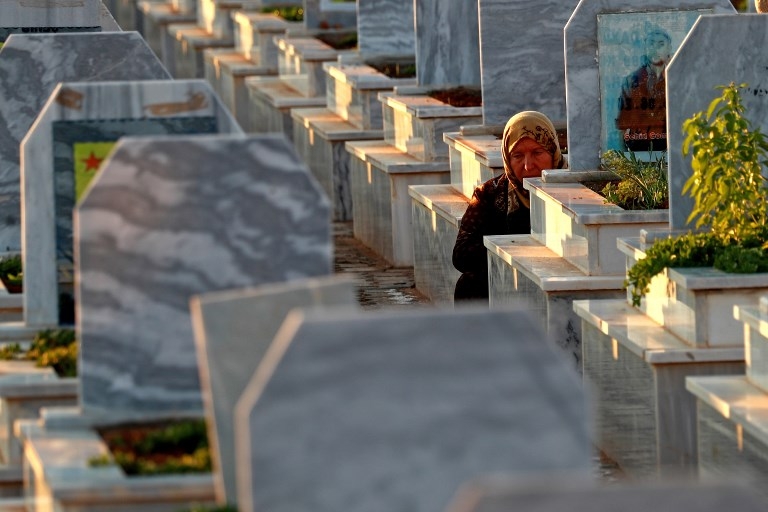UN tells Syria: Give details of the thousands of people who died in custody

UN war crimes investigators have called on Syria to give families details of what happened to their relatives who disappeared and provide the medical records and remains of those who died or were executed in custody.
No progress can be made towards a lasting peace to end the nearly eight-year-old war without justice, the International Commission of Inquiry on Syria said on Wednesday.
After years of government silence, Syrian authorities this year released "thousands or tens of thousands" of names of detainees alleged to have died, mostly between 2011 and 2014, the war crimes commission said in a report released before delivery to the UN Security Council.
"Most custodial deaths are thought to have occurred in places of detention run by Syrian intelligence or military agencies. The commission has not documented any instance, however, where bodies or personal belongings of the deceased were returned," it said.
In nearly every case, death certificates for prisoners that were provided to families recorded the cause of death as a "heart attack" or "stroke," the independent panel led by Paulo Pinheiro said.
"Some individuals from the same geographic area share common death dates, possibly indicating group executions," it said.
In most cases, the place of death was stated as Tishreen military hospital or Mujtahid hospital, both near Damascus, but the place of detention was not named.
"Pro-government forces and primarily the Syrian state should reveal publicly the fates of those detained, disappeared and/or missing without delay," the report said, noting this meant Syrian government forces, Russian forces and affiliated militia.
Families had the right to know the truth about their loved one's deaths and be able to retrieve their remains, it said.
In a 2016 report, the panel found that the scale of deaths in prisons indicated that the government of President Bashar al-Assad was responsible for "extermination as a crime against humanity".
Amnesty International estimates that more than 17,723 people died in custody in Syria between March 2011 and the end of 2015. The Syrian Observatory for Human Rights, an opposition monitor, said its sources found that at least 60,000 people had died in custody due to torture, hunger and mistreatment.
In Syria, a family member must register a death within a month after receiving a death notification, the report said. Failure to do so results in a fine which grows after a year.
But given that there are millions of Syrian refugees abroad and internally displaced, many are not in a position to meet deadlines, the report said.
The lack of an official death certificate may affect the housing, land and property rights of relatives, it said, noting that female-headed households may face further challenges to secure inheritance rights.
Ambulances 'repeatedly targeted'
The calls come as a new study found that ambulances have been intentionally and repeatedly targeted in Syria.
The research, published in the peer-reviewed journal BMJ Global Health, analysed reports of 243 attacks on ambulances in 2016 and 2017 and found more than half were deliberately targeted.
"There is no ambiguity in the results: ambulances are directly and repeatedly targeted in Syria," Hayes Wong, one of the two US-based authors of the report, told the Thomson Reuters Foundation on Tuesday.
The attacks studied were mostly in opposition-held enclaves in and around Aleppo, Idlib and Damascus, and nearly 90 percent were carried out by Syrian government forces and their Russian allies, the paper said.
There have been repeated reports of attacks on medical workers and healthcare facilities during Syria's seven-year conflict, even though both are protected by international law.
Middle East Eye propose une couverture et une analyse indépendantes et incomparables du Moyen-Orient, de l’Afrique du Nord et d’autres régions du monde. Pour en savoir plus sur la reprise de ce contenu et les frais qui s’appliquent, veuillez remplir ce formulaire [en anglais]. Pour en savoir plus sur MEE, cliquez ici [en anglais].

